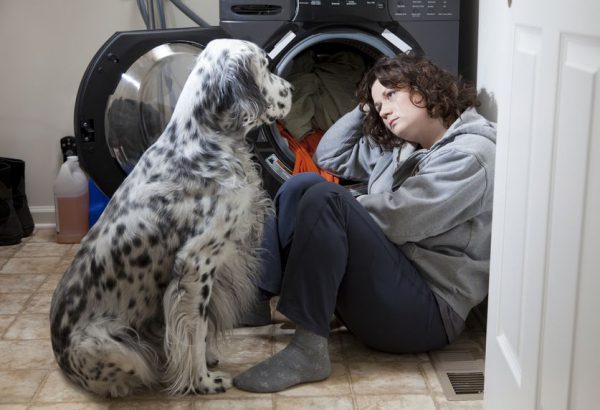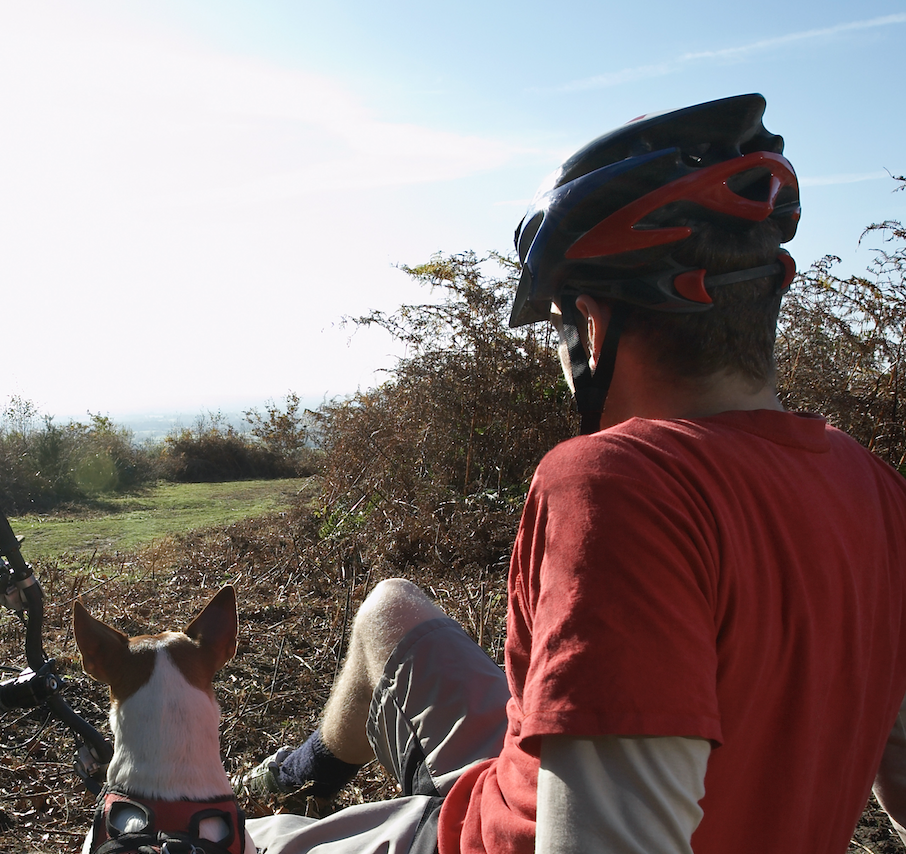
The number of health conditions that service dogs can help an individual to deal with, increases constantly. Regardless of the nature of the impairment- physical or mental, service dogs provide great help for their handlers due to the specific tasks they perform. You may not be familiar with the fact that 16 percent of the general population worldwide (135,000 to 200,000 people in the US in particular) deal with narcolepsy. Although this condition may not look so “severe” as other health issues, it has many consequences and negatively affects the lives of many people.
We would like to let you know more about Narcolepsy- what does it mean for a person to cope with this condition, what are its symptoms, and especially how a service dog can help his/her handler to deal with Narcolepsy on a daily basis.
What is Narcolepsy?
This is a neurological chronic health condition that interferes with the ability of the brain to manage the sleep-wake cycles. This sleep disorder is usually accompanied by enormous feelings of fatigue, tiredness, and sleep attacks that suddenly occur. Individuals dealing with Narcolepsy are unable to stay awake for long periods throughout the day. This condition greatly affects and the daily routine of the person and disrupts it seriously.
What Are the Causes of Narcolepsy?
It is assumed that lack of a chemical called hypocretin, contained in the brain, may cause Narcolepsy. People who lack hypocretin are likely to have an immune disorder, which causes their immune system to attack the brain part, giving off this chemical.

What Are the Symptoms of Narcolepsy?
Extreme Fatigue, Tiredness and Sleepiness Throughout the Day
People handling Narcolepsy can fall asleep at any time and anywhere, regardless of the situation. They may sleep for a few minutes or an hour and look energized after they wake up. However, they are likely to fall asleep or get tired again during the day. Due to this constant state of sleepiness, people suffering from Narcolepsy, find it difficult to stay focused and alert. Fatigue and sleepiness are the first symptoms that occur and they are likely to have the most severe impact on the individuals, by making them unable to function normally.
Sleep Paralysis
Sleep paralysis is a condition that makes you unable to speak or move while waking up or falling asleep. It usually lasts from a few seconds to several minutes. It can be really terrifying for people who are experiencing it, as they are likely to recall it after it occurs, however, they are unable to control it.
Cataplexy
Cataplexy was also known as loss of muscle tone is a condition that occurs due to immense emotions both positive or negative (surprise, excitement, fear...etc.), and can lead to mumbling speech or weakness of most muscles, i.e. your knees may buckle.
Hallucinations
Hallucinations, related to Narcolepsy may feel real and vivid and thus be very frightening for the person, who is experiencing them. Depending on when they occur- while a person is falling asleep or while they are waking up, hallucinations can be divided into hypnagogic and hypnopompic.
Changes in the Rapid Eye Movement (REM) Sleep Phase
Individuals, who are dealing with Narcolepsy, can fall into a REM phase at any time. As you may already know, dreams occur during this phase. However, people handling Narcolepsy can move to a REM phase much quicker than others- within 10-15 minutes.

Narcolepsy and How Service Dogs Can Help You Deal with It
The main medications for the treatment of Narcolepsy are stimulants that affect the central nervous system so that individuals with this condition can stay awake throughout the day. Besides the medications as primary treatment tools, many people benefit from the help that service dogs provide.
Alerting
Service dogs can be trained to perform various tasks that suit the specific needs of an individual. These tasks include but are not limited to alert tasks. i.e. a service dog can be trained to detect changes that occur, right before an individual is going to have an episode. They can alert the person by licking, pawing, or nudging them or through vocalization (barking). How exactly the service dog will be trained to notify the person, depends on their preferences. Being alert about an oncoming episode may help the person find a place, where they can lie down until the episode passes.
Guiding to a Safe Place
If a person is about to have an episode, the service dog may guide them to a safe place.
Protect their Handler’s Body
Once a service dog recognizes an oncoming episode, it can use its body to protect the handler from falling down and getting injured.
Medical / Retrieving Tasks
A service dog may also call 911, or bring their handler medications or any kinds of objects that they may be unable to reach, i.e. due to a loss of muscle tone.
Wake Up the Handler through Tactile Stimulation
Through tactile stimulation, a service dog can wake their handler up and help them engage in their daily activities.
Deep Pressure Therapy
Due to the constant state of fatigue people with Narcolepsy are prone to depression and anxiety. In this case they can benefit from a Psychiatric Service Dog. Deep Pressure Stimulation like jumping on their lap or putting their chin over the handler’s lap, arm or shoulder, is likely to alleviate the symptoms of stress, anxiety and depression.
Help the Handler Stay Focused
Lack of focus and concentration may result in difficulties to memorize even simple information. Having a service dog will help the person stick to a schedule including feeding, walking, exercising the dog, and especially giving different types of commands, which will improve their focus abilities and memorization skills.
Help the Handler Improve their Mobility
Walks and exercises that dogs require, will be beneficial for the physical health of a person with Narcolepsy. This is extremely important for people, who have to deal with high blood pressure or obesity as secondary symptoms of this condition.
How to Get a Service Dog for Narcolepsy?
Training Organization / Personal Trainer
In order to get a service dog for Narcolepsy, you can contact an organization /a personal trainer, engaged in service dog training. Some requirements that an individual may need to fulfill if they stick to this option include:
-To be at least 12 years old (children with certain conditions are considered an exception);
-To be able to participate in the training process for a certain amount of time, i.e. an hour per day for several months (depending on how long the training process will continue);
-To be diagnosed with Narcolepsy by a medical professional;
-To be able to offer the dog a stable environment and living conditions;
-To be able to handle the dog;
-To not raise the service dog with other dogs.
However, we would recommend that you contact the organization you are interested in for accurate information about their requirements and conditions.
Contacting an organization and benefiting from the knowledge and experience of professional trainers will be really helpful for you. Unfortunately, the costs of getting a trained service dog may reach up to $30 000 and as we mentioned in many articles, you may need to wait for a year or two to get one. Moreover, some organizations train their own dogs only, and you may be unable to choose a dog breed according to your preferences.
Train Your Own Dog for Narcolepsy
A second option you may want to consider is to train your own dog for narcolepsy. In order to do that, you can enroll in an online training course, that includes basic obedience and social skills as well as more advanced ones depending on the certain tasks that you want your dog to perform. Americans with a Disability Act (ADA), which regulates the status of service animals in the US, allows handlers to train their own service dogs: “People with disabilities have the right to train the dog themselves and are not required to use a professional service dog training program.” A big advantage of online courses is the opportunity they offer to the handlers to adapt the training process to their specific needs and focus on the tasks that will be most beneficial for them based on their symptoms. Of course, in this case, you should be able to conduct the training and control the dog. If your symptoms do not allow you to participate in the training process effectively, your relative/friend can become the dog’s handler, and you can be their user. Training your own dog will be definitely a more affordable option. However, time, consistency, and patience are essential factors, that you will need to consider in this case.













